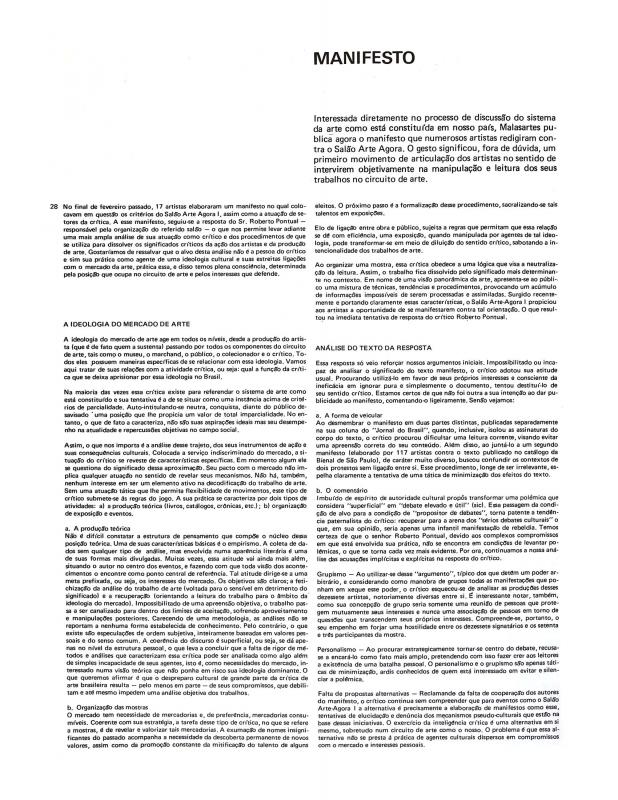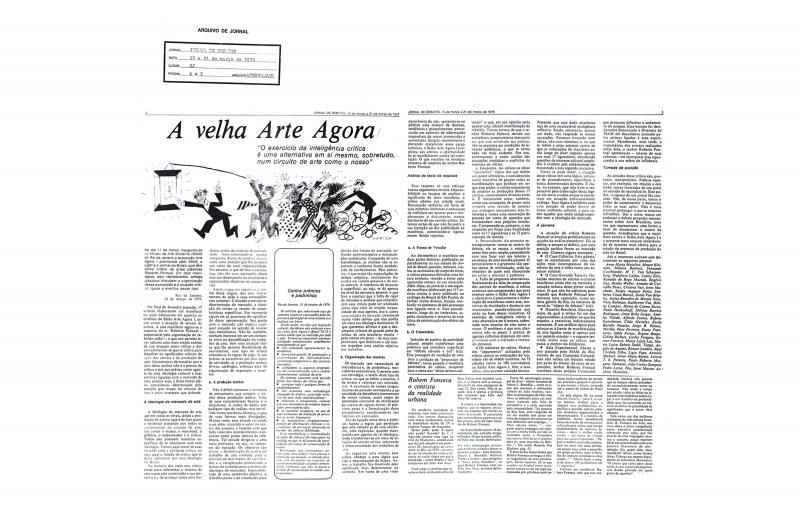This essay by Carlos Guilherme Mota, published in Malasartes magazine in 1976, includes parts of the thesis he presented to the Departamento de História da Universidade de São Paulo in 1975, which was published five years later as a book: Ideologia da cultura brasileira: pontos de partida para uma visão histórica. It was, then, an unprecedented study of landmark periods in recent Brazilian twentieth-century history which influenced the phenomenon known as “Brazilian culture.” The article appeared in Malasartes—an art magazine published by critics and artists, including Ronaldo Brito, Waltercio Caldas, Cildo Meireles, José Resende, and Carlos Zílio—in an attempt to make a difference at that particular time (while the country was under a military dictatorship that controlled every aspect of life) with its critical view “of Brazilian society in general.” The essay accomplished its mission by discussing the role played by intellectuals in the difficult historical-cultural process during the half century that stretched from the 1930s to the 1970s, and by evaluating the forces for cultural and political renewal vis-à-vis the fundamental question of “dependence” that affects a country living on the fringes of the capitalist world and rocked internally by all kinds of ideologies that seek to define its “national culture.”
The “Manifesto,” written by 17 artists living in Rio de Janeiro and published in Malasartes magazine, illustrates types of ideologies that distort cultural content. Its goal was to get involved in the art circuit’s manipulation of the interpretation of their works [see doc. no. 1111318]. The same magazine also published another joint proclamation that, among other things, challenged “the ideology of the art market” in a document entitled “A velha arte agora” [doc. no. 1110593]. This document reflected the influence of the curatorial role played by the critic Roberto Pontual, who questioned the existing situation in the Brazilian art market.


